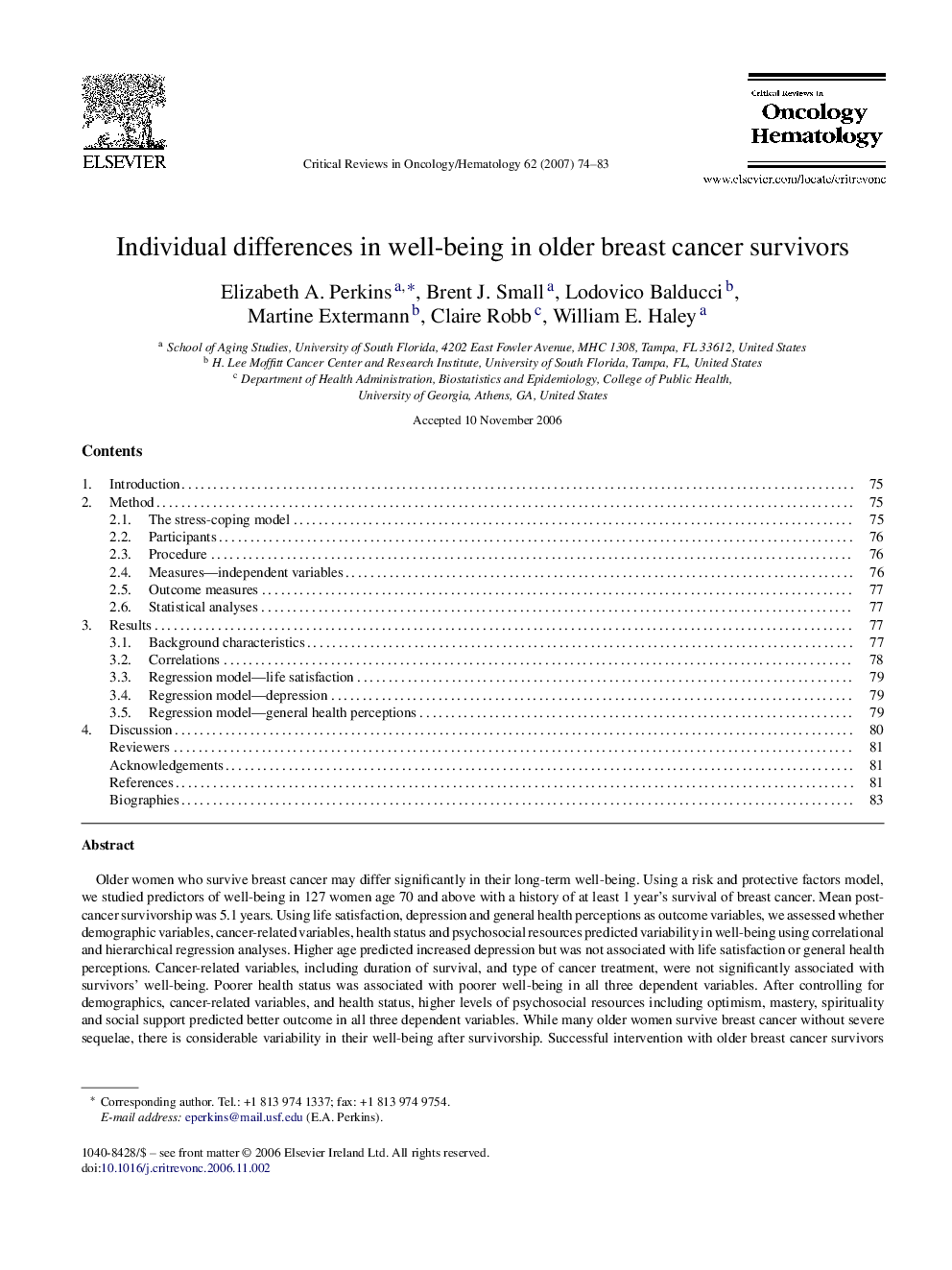| Article ID | Journal | Published Year | Pages | File Type |
|---|---|---|---|---|
| 3330187 | Critical Reviews in Oncology/Hematology | 2007 | 10 Pages |
Older women who survive breast cancer may differ significantly in their long-term well-being. Using a risk and protective factors model, we studied predictors of well-being in 127 women age 70 and above with a history of at least 1 year's survival of breast cancer. Mean post-cancer survivorship was 5.1 years. Using life satisfaction, depression and general health perceptions as outcome variables, we assessed whether demographic variables, cancer-related variables, health status and psychosocial resources predicted variability in well-being using correlational and hierarchical regression analyses. Higher age predicted increased depression but was not associated with life satisfaction or general health perceptions. Cancer-related variables, including duration of survival, and type of cancer treatment, were not significantly associated with survivors’ well-being. Poorer health status was associated with poorer well-being in all three dependent variables. After controlling for demographics, cancer-related variables, and health status, higher levels of psychosocial resources including optimism, mastery, spirituality and social support predicted better outcome in all three dependent variables. While many older women survive breast cancer without severe sequelae, there is considerable variability in their well-being after survivorship. Successful intervention with older breast cancer survivors might include greater attention not only to cancer-specific concerns, but also attention to geriatric syndromes and functional impairment, and enhancement of protective psychosocial resources.
